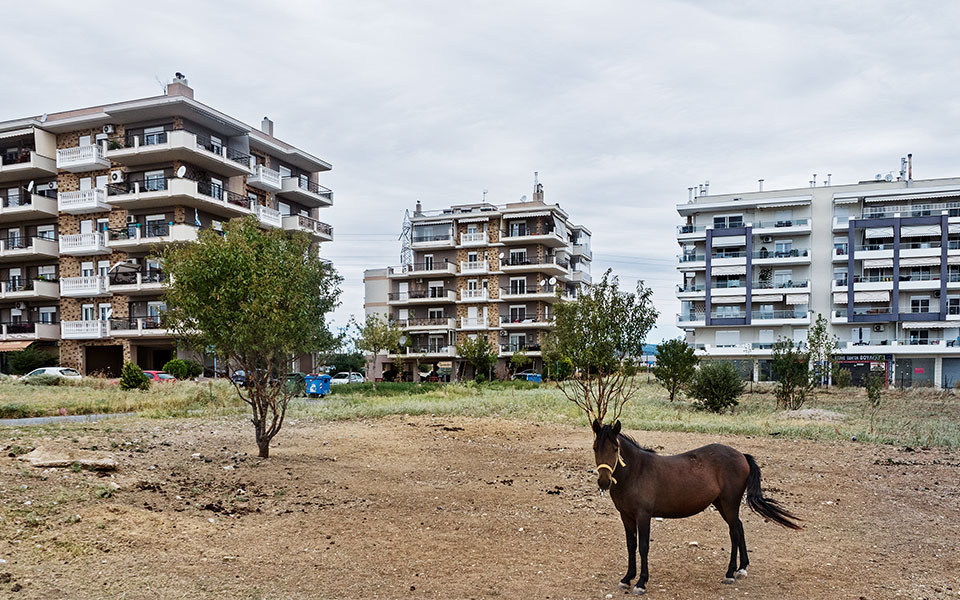The locals say that the moment you cross Langadas Avenue where it meets Vardaris Square, you have effectively reached a boundary. Yet, unless you know to expect it, you’re unlikely to become aware of the change. The only thing you’ll notice as you keep on walking is that there are more trucks and fewer pedestrians, and that the apartment blocks are taller and the horizon is narrower. Every city has a side with less sparkle. In London, Paris, Manchester, Glasgow and Helsinki, this less polished side is in the east; in Thessaloniki, it is to the west.
For those living in the city center and in the eastern neighborhoods, west Thessaloniki is a transit area rather than a destination. Rarely do non-residents forego the ring road in order to discover neighborhoods like Stavroupoli, Neapolis, Ambelokipi, Menemeni, Kordelio, Evosmos, Polichni or Oreokastro.
Although all of these are no more than a five to twenty-five minute drive from central Aristotelous Square, they are, for most tourists visiting Thessaloniki, terra incognita. Those who do happen to pass through, do so most likely fleetingly, on their way to the New Railway Station, the intercity bus station, Moni Lazariston or the State Museum of Contemporary Art.
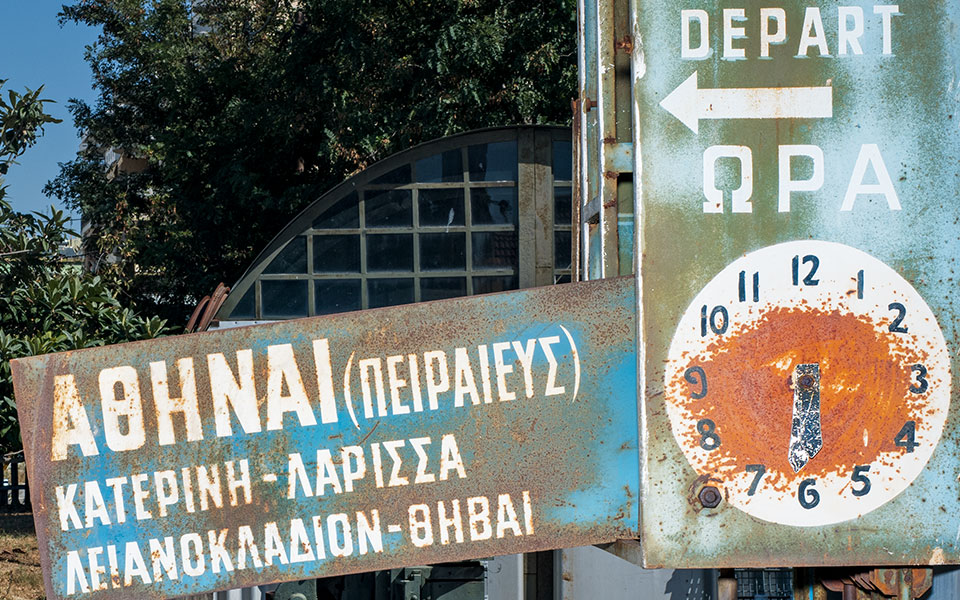
© Dimitris Michalakis
Western History
Under Ottoman rule, this side of the city was full of swamps and fields. At the end of the 19th century, Thessaloniki’s industrial zone was created, making the city the economic center of northern Greece in the early 1900s. A few years later, it would receive waves of refugees from Eastern Thrace, Asia Minor and the Pontus region in the Black Sea, who erected the first rudimentary settlements.
This is an area that is heavily charged with the traumatic memories not only of the refugees, but also of the Jewish community. In 1943, 50,000 Jews were deported from the Old Railway Station to Auschwitz-Birkenau, where they met a harrowing end.
West Thessaloniki today consists of densely populated neighborhoods with no access to the sea. Some offer no view of the horizon – it has been obscured by the tall apartment buildings. The area is one of highways, machine shops, manufacturing plants and factory chimneys, where multi-story apartment blocks rise skyward above the few small single-family dwellings that remain, and toddlers play on swings in playgrounds down the street from brothels.
There are even whole neighborhoods, such as Nea Politeia in the Evosmos suburb, that resemble ghost towns.
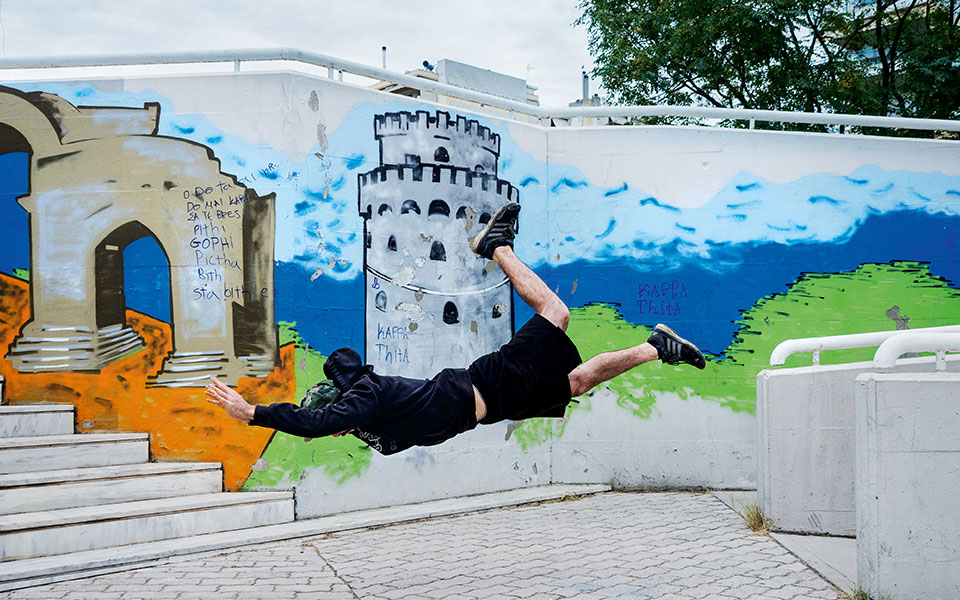
© Dimitris Michalakis
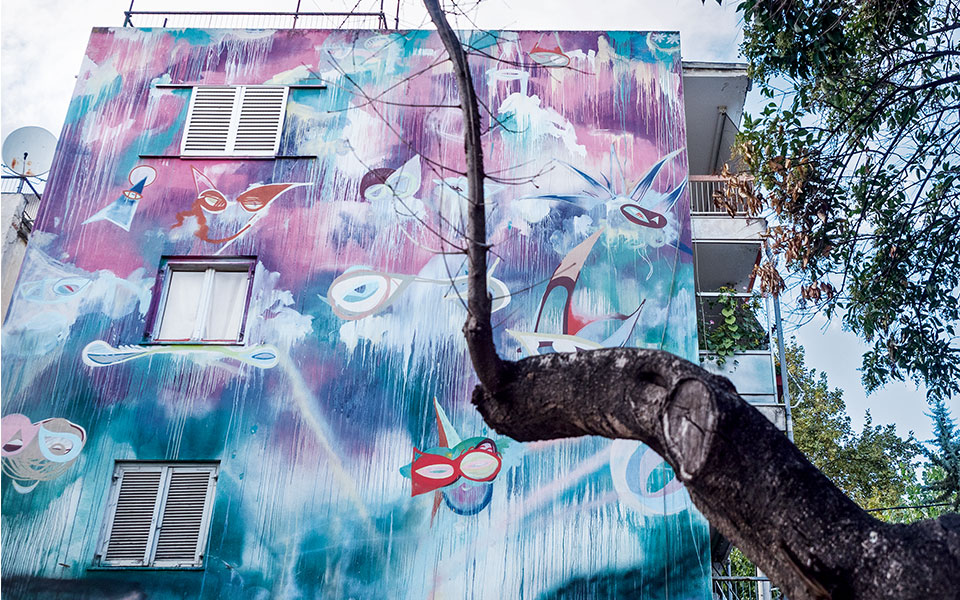
© Dimitris Michalakis
Future Promise
This area, further out and at a higher elevation compared to the older, denser neighborhoods, boasts a spectacular panoramic view extending from Kalochori to Thessaloniki’s seafront and main harbor, and some felt that it could become a new, highly attractive suburb. The financial crisis, however, put all such dreams on hold, leaving behind newly-built apartment blocks with few or even no occupants, half-finished sport facilities and deserted streets.
Nonetheless, a visit to the west is not a melancholy affair. The majority of Thessaloniki’s population lives right here in these suburbs. According to the most recent statistics, these neighborhoods have some of the youngest populations on average in Greece. Once you factor in the thousands of students attending the Technological and Educational Institute (TEI) of Thessaloniki and the School of Fine Arts, it becomes clear why these neighborhoods display such a strong youthful vibe.
You can feel this energy most keenly in Evosmos, the second-largest municipality in terms of population in the regional unit of Thessaloniki: in schoolyards that double as parkour training grounds; on fields where young soccer players train until late at night; and on the main square of Evosmos, packed with café-bars and restaurants.
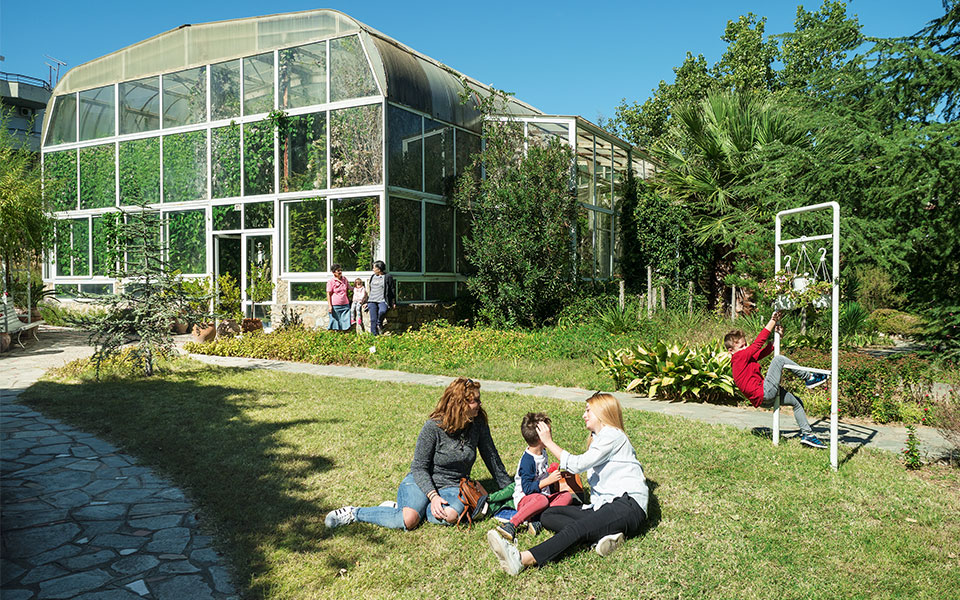
© Dimitris Michalakis
The hidden gems
Hidden in the most unlikely places are treasures unknown to most, including locals from the other side of the city. Who’d have thought that a rare, genuine Orient Express dining-car can be found in Kordelio? Built in 1905, it was in service until 1950; today, it’s parked in the courtyard of the Railroad Museum of Thessaloniki, along with other exhibits. The museum is housed in the restored historic Military Railway Station, built in 1894 according to plans by the Italian architect Pierro Arrigoni.
The nearby neighborhood of Ambelokipi has the largest military cemetery in Greece, the Allied Cemetery of Zeitenlik. It is a moving site, with row upon row of uniform tombstones that often bear heartrending inscriptions. About 20,500 French, Serbian, Italian, British and Russian soldiers who fought in World War I are buried here.
In fine weather, a stroll in the archaeological park of Polichni – five Byzantine watermills and one wine press have been excavated here – can be very pleasant. Another good option is the Botanical Garden of Stavroupoli. This 5,000 square-meter garden, featuring 1,000 plant species, is a well-maintained oasis in the midst of massive concrete apartment blocks.
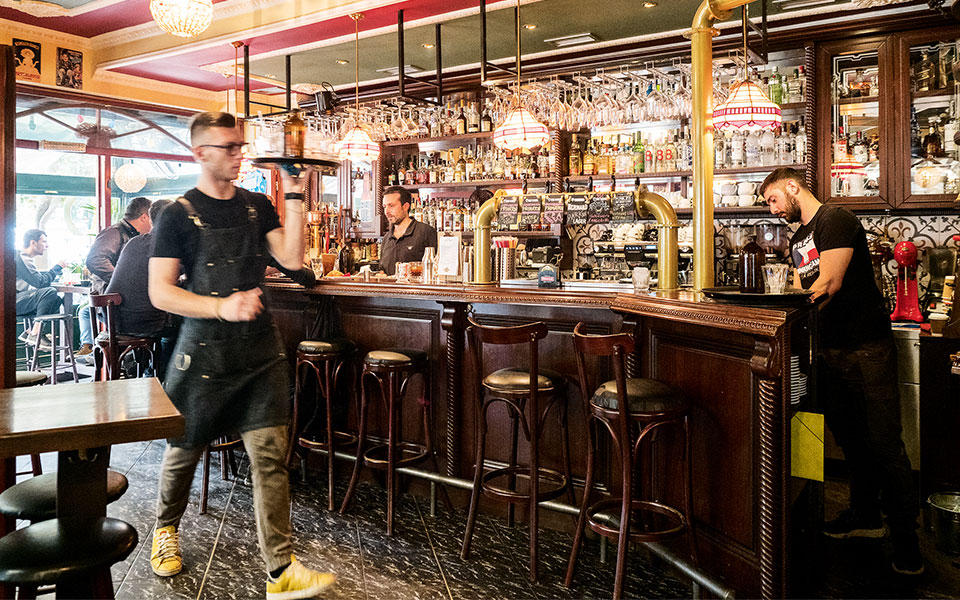
© Dimitris Michalakis
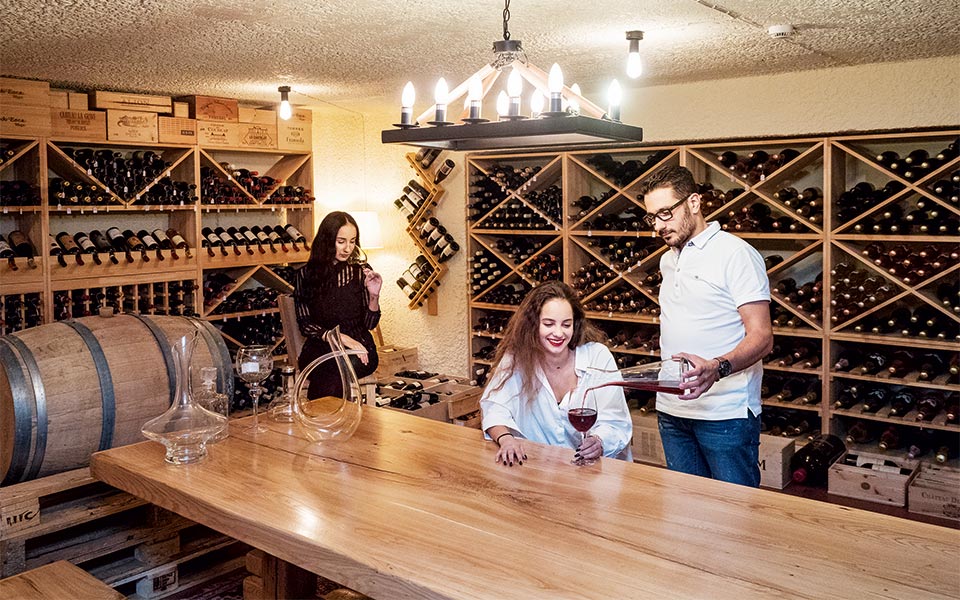
© Dimitris Michalakis
Wining, Dining and Brunch
Anyone who thinks that the west part of town hasn’t kept up with current trends is in for a surprise: one of Thessaloniki’s leading wine shops sits on the border of Evosmos and Menemeni. An elevator takes you down to the cellars of the Abatzis wine shop, which also operates as a wine-tasting venue. Here you can find wines from all over Greece as well as from abroad: with over 4,000 selections that include very expensive premium wines such as the €5,000-6,000 Romanée-Conti and Château Petrus. “We love this neighborhood, and we want this space to play an educational role,” says wine specialist Dimitrios Motsos, who holds a degree from the Wine and Spirit Education Trust.
There are plenty of options for going out. Mata Hari in Menemeni is a legendary bar, with a history that spans 32 years – one of those places that are a real joy to discover when you are exploring a foreign city. In the evening, patrons perched on the leather stools along its long wooden counter can order beers from the six taps that form part of the ornate décor; in the morning, they can enjoy high-quality coffee.
Lykiskos in Stavroupoli offers a selection of about 50 different beers, while the U Bar Project, housed in an old villa in Evosmos, serves high-quality coffee blends and is the area’s hotspot for brunch as well as for evening cocktails, available until late at night.
Hidden in the most unlikely places are treasures unknown to most, including locals from the other side of the city.
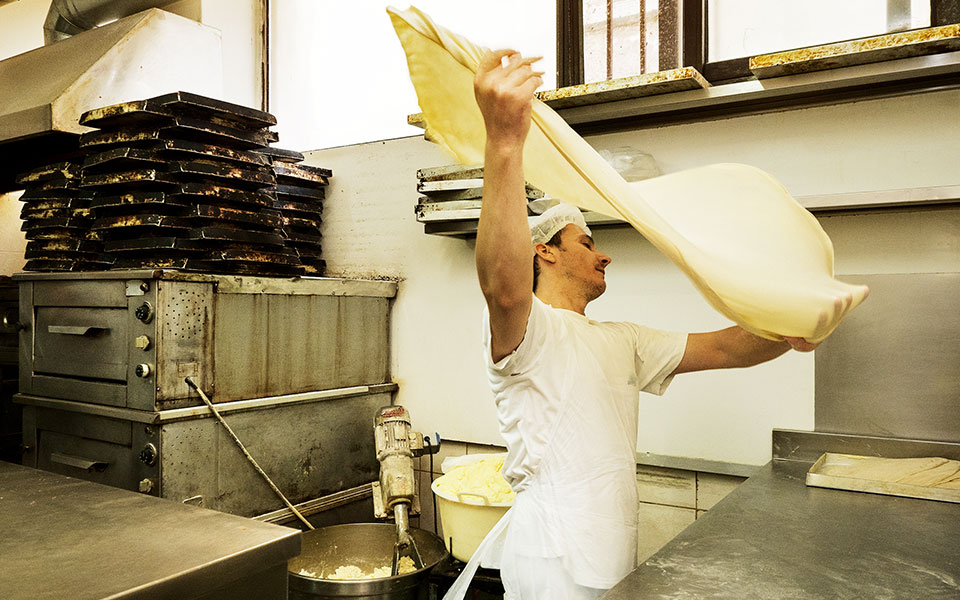
© Dimitris Michalakis
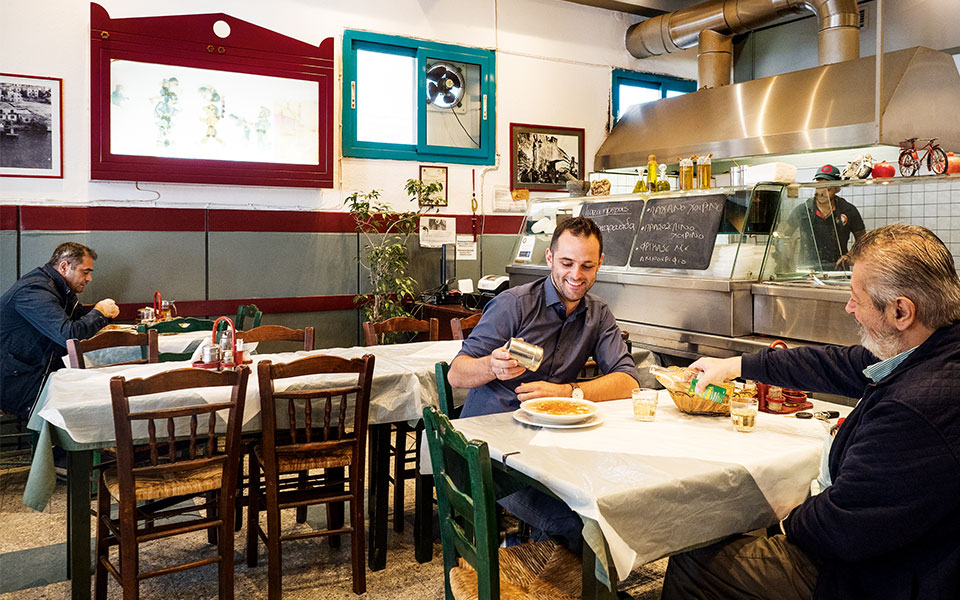
© Dimitris Michalakis
Ask the locals to reveal their personal gourmet secrets, and they will likely send you to Koukloutzas, an eatery specializing in patsas (tripe soup), a local delicacy. One of the oldest such eateries in Thessaloniki, it’s been in operation since 1994. Open 24/7, 365 days a year, it serves around 600 bowls of soup a day; if you’re not a fan of tripe, other options include chicken soup and mushroom soup.
During your stop at the bakery called Panos, owned by Panos and Sakis Paschalidis and specializing in handmade bougatsa (a pie typically made with cheese or sweet cream filling), take a look behind the scenes to see how a small ball of pastry dough is transformed into a sheet as large and as thin as a tablecloth. On high-demand days, the shop can produce 120 trays, or 600 individual pies.
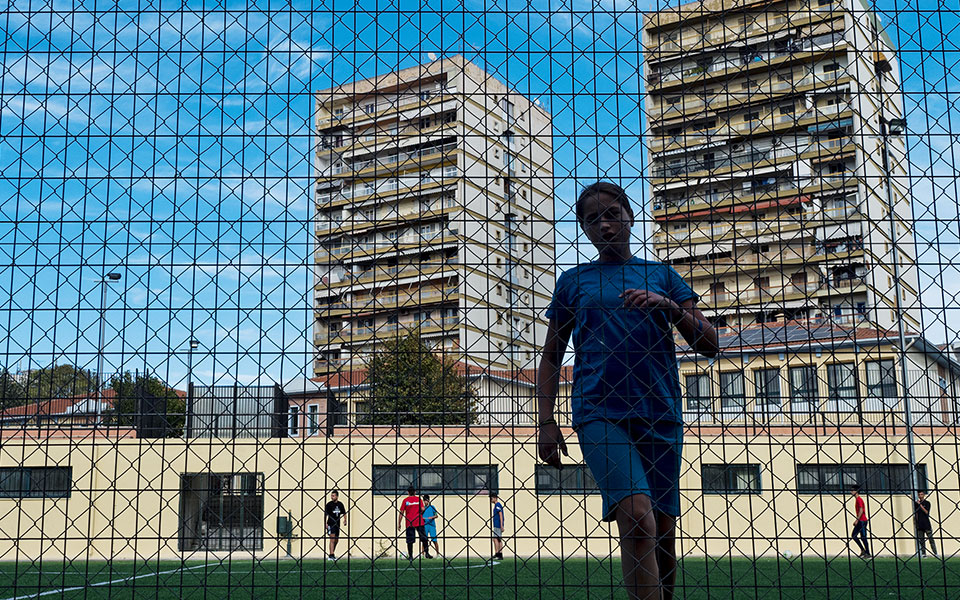
© Dimitris Michalakis
Works in Progress
It’s more than likely that this previously ignored side of the city, with secrets known only to a select few, will in fact end up constituting one of Thessaloniki’s most popular spots. The western city districts were recently included in the expansion plans for Thessaloniki’s underground metro, and a new phase of development projects is scheduled to begin soon.
These include the transformation of the Pavlos Melas Military Base, abandoned since 2006, into a 36-hectare metropolitan park. The redevelopment, expected to take about ten years, is being designed by architects Prodromos Nikiforidis and Bernard Cuomo. It will radically improve the quality of life in the whole of Thessaloniki, which is in dire need of green havens and outdoor walking spaces.
The construction of the Holocaust Museum, a six-story octagonal tower made of metal and glass providing a total exhibition space of about 7,000 sq.m., is scheduled to begin in the next few months. With visitor numbers from Israel rising each year, it’s certain that this museum will attract international attention as well as domestic interest.

